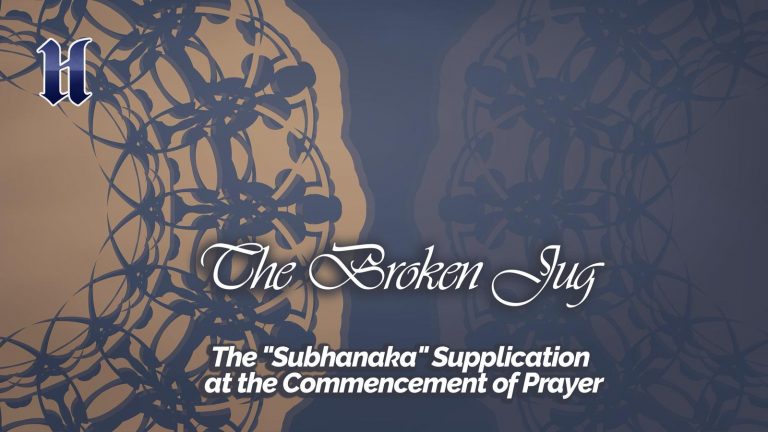Question: What does “perfect intention” mean? What are the properties of an intention, which is stated as being better than one’s deeds?
Answer: Scholars of both Islamic Jurisprudence and discipline of Hadith defined intention as “what the heart truly wills.” As for what is meant by perfect intention, as the true will of the heart, it can be defined as a person solely turning toward God, who is the Absolute One to be worshipped and the True Desired One, and seeking His approval in all their deeds. As it is known, the most famous saying of the Prophet about intention is the first one Imam Bukhari included in his classic work:
“Actions are judged by intentions, and a person will get a reward according to the intention. So, whoever emigrated for God and His Messenger, his emigration will be for God and His Messenger; and whoever emigrated for worldly benefits or for a woman to marry, his emigration would be for what he emigrated for.”1
According to this hadith, if somebody observes the prayers to deceive people by attempting to appear pious, they find no reward in the Afterlife for such deeds; since their heart was not oriented to God but to appreciation by people. Actually, such an attitude is the character of hypocrites. They do not believe in making ablution, observing prayers, guiding others, and serving their people and humanity with altruistic attitude. By stating that actions are judged by intentions, the hadith lets us know that actions which do not seek God’s good pleasure bear no value.
Varying Degrees of Intention
On the other hand, we need to admit that not everybody is on the same level. A person’s purity of intention is directly proportional with their horizons of knowledge of God. Their intention will vary in accordance with how sound their faith is, how immersed they are in knowledge of God, and how the consciousness of omnipresence of God flourishes in their hearts. For this reason, those with broad horizons in regards to knowledge of God need to aim higher with their intentions, which can be seen as the starting point of worship. One who makes a sound intention, which we can call the basmala of worship, can offer acts of worship—such as the prayers, fasting, and zakat—with due awareness and consciousness.
In the Hanafi school of thought, pronouncing one’s intention was seen as preferable. On the other hand, even though he is not renowned as a jurist, the great guide Imam Rabbani objected pronouncing the intention. Accordingly, since intention is what the heart truly wills, the heart must become oblivious to all other things than God and totally become fixed on Him in full concentration. Pronouncing the intention with the mouth must not busy the mind and having such additional concern might make it difficult to become fully concentrated. Therefore, that great imam held such a profound and immense consideration about intention for prayer. Personally, even though I say the intention with my tongue, I favor this view of Imam Rabbani, since making the intention with the tongue might sometimes be misleading. Believers might feel content with having said the words but fail to orient themselves to God Almighty with all of their outward and inward faculties. They may not achieve a full concentration of the heart. The voice of their heart may not have accompanied the voice coming out from the mouth. However, words being uttered are not the basis for intention; they only bear a meaning as far as they are the voice of the heart. On the other hand, holding everybody responsible for such a level of intention means expecting everybody to be at the same horizons of the heart and spirit, which will not be a realistic expectation. For this reason, it is best to believe that the acts of worship will be accepted from those who turn to God with a sincere intention at their giving alms as zakat, fasting, and going to Hajj. At the same time, such an approach is an expression of taking into consideration that Divine Providence will help the worshipper, the principle of easiness in religion, and having a positive opinion of people. It should not be forgotten that holding a positive opinion about others is one of the branches of worship.
The Connection between Pure Intention and Deeds
We need to expound on what we mean by “what the heart truly wills,” the phrase we used while defining intention. “What the heart truly wills” does not denote something passing a person’s mind or heart. On the contrary, it denotes being resolved at one’s intention and making a serious effort to put that intention to practice. In other words, as orienting oneself to God is the theoretical side of intention, attempting to do this is the practical side. In this respect, one needs to be resolved at putting the intention into practice by achieving such concentration. In other words, although intention is an issue to be considered within religious commandments, its realization depends on an individual’s religious practices. And seriousness of intention reveals itself in having the theory and practice together. This is not only limited to essential acts of worship such as fasting and prayers, but applicable for all acts of goodness. The practical value of intention can be understood from the following statement of Bediüzzaman: “The intention to be humble spoils humility, the intention to be great provokes contempt…” Lowering one’s wings of humility down to the ground is an important virtue in Islamic morality, but the thought “let me appear a tad humble,” eliminates it; because it is an indication of running after one’s desires and fancies. It may turn out that the speaker’s intent is not being humble, but being appreciated, applauded, and becoming a person recognized by others. Similarly, attempting to appear great provokes contempt in others, the exact opposite of the intended purpose. Or, for instance, assuming a proud attitude toward a proud person is not an indication of being proud, since there is a different intent. In sum, an intention finds its value in practice, the real motive is revealed through its practical dimension.
The Reward that Corresponds to the Intention
As the Messenger of God, peace and blessings be upon him, once stated in the name of stressing the importance of intention, a man’s intention is better than his deed. At another instance, he stated that a person who intends to do something bad but then desists from it, and a person who intends to do something good but does not find the chance to do it will also gain rewards for their intention. Accordingly, if someone who intends to do an evil act and is determined to do it desists from that act for the sake of God, this will be recorded as one good deed. In the same way, someone who cannot find the chance to do and intended an act of goodness will be rewarded for this intention.
To give an example, the volunteers disperse to the four corners of the world for the sake of humanity to share their values and spiritual heritage, and they act sincerely. Their devotion reaches such a degree that when they think about it, their eyes fill with tears and they cry their hearts out. At the same time, they make use of every opportunity for the sake of their sublime ideals. However, they cannot realize their intent owing to adverse conditions. So the glad tidings of the noble Prophet are true for believers in this situation; their intention is more valuable than their deed, and they will be rewarded as if they realized that deed, according to their intention.
1. Sahih al-Bukhari, Bad’ul-Wahy, 1
This text is the translation of “Kamil Niyetin Özellikleri (1)“






